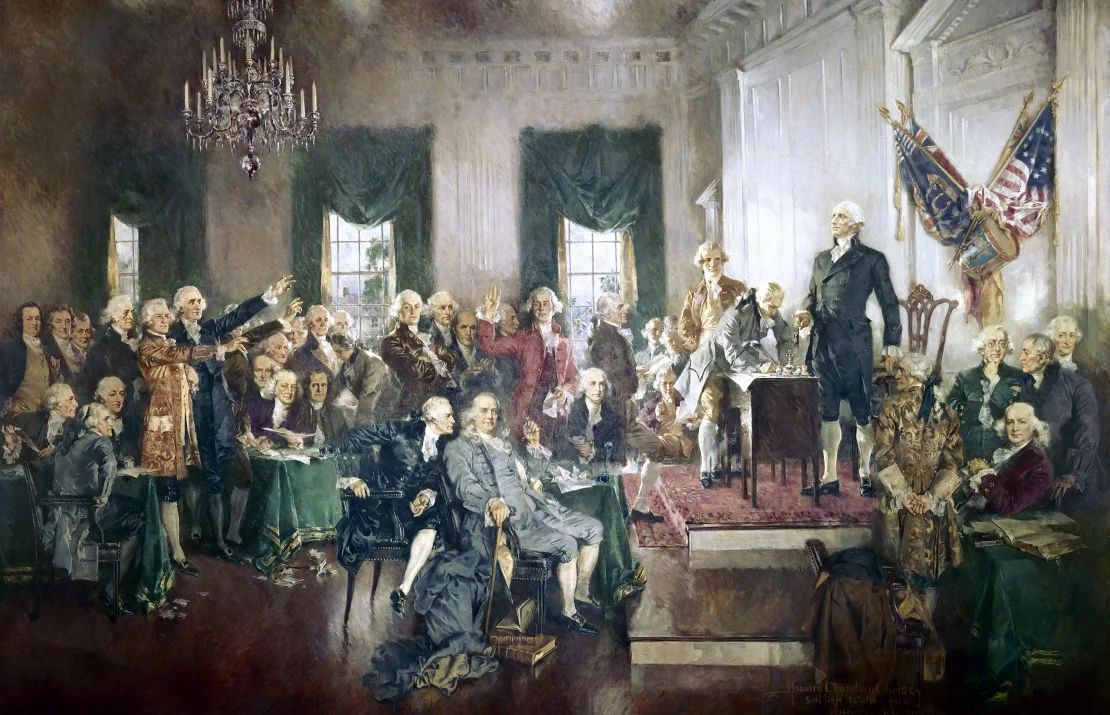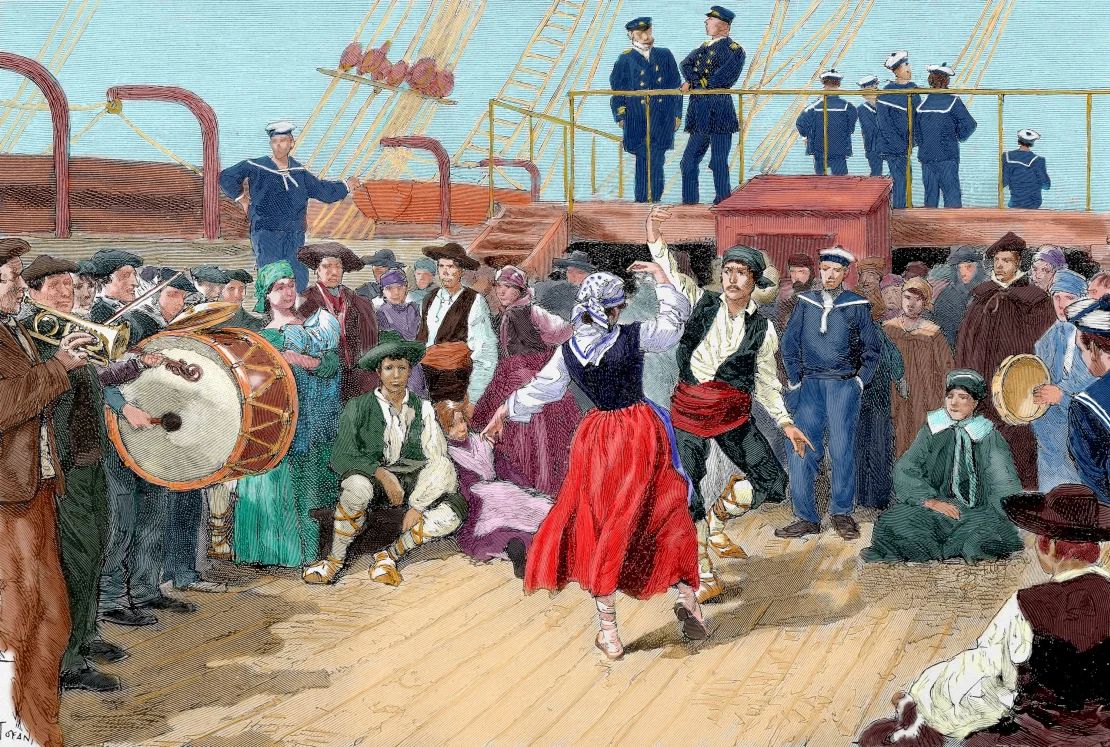Citizenship by birth: Why is the “land right” so important in the American continent?

CNN
–
Recently, when the president of the United States, Donald Trump signed a decree that would deny citizens to the children of undocumented immigrants living in the country pointed to what he suggested that it was a peculiarly American principle: citizenship by birth right.
While the courts mobilized to temporarily block their decree, several media said that the president’s statements were not quite exact. According to the Legal Library of Congress, more than 30 countries around the world recognize citizens by birth right without restrictions, by virtue of which children born in their territory automatically acquire that right regardless of their parents’ immigration situation.
“It’s ridiculous. We are the only country in the world that does this with birth right, as they know, and is absolutely ridiculous, ”said the 47th president of the United States by questioning a principle that some of his opponents say that he is in the very heart of what It means to be called American. For more than 150 years, the 14th amendment of the Constitution has granted automatic citizenship to every person born on American soil.
While the courts acted to temporarily block their order, several media indicated that the president’s statements were not entirely exact. According to the Law Library of Congress, more than 30 countries around the world recognize citizens by birth without restrictions, by virtue of which children born in their territory automatically acquire that right regardless of the immigration status of their parents.
However, leaving aside the presidential hyperbole, the law library data seems to suggest that there are something particularly American (both from the north and southern) in the idea of citizenship by birth right without restrictions.
Surprisingly, almost all countries that recognize citizens by birth right without restrictions are found in the western hemisphere, in North America, South and Central.
The vast majority of countries in the world do not recognize the principle of ius soli (From the Latin “land law”) on which citizens are based by birth without restrictions or, if they recognize it, they do so only in certain circumstances, which often have to do with the immigration status of the parents of the newborn.
So how did the division occur?
In North America, the “land law” was introduced by the British through their colonies, according to the study “The evolution of citizenship” by Graziella Bertocchi and Chiara Strozzi.
The principle had been established in English law at the beginning of the seventeenth century through a sentence that established that all those born in a place subject to the king of England was a “natural subject of England.”
When the United States declared its independence, the idea endured and used –– pedically for the British who were going – to avoid foreign influence, as in the constitution requirement that the president is a “citizen by birth” of the United States.
However, it was not until the 1820s that a movement led by black Americans – whose citizenship was not explicitly guaranteed at that time – forced the country to seriously think about the issue, according to Martha Jones, history professor at Johns Hopkins University .

“In part, they are based on birth right because the United States Constitution of 1787 demands that the president be a citizen by birth. Therefore, they raise the hypothesis that if there is a citizen by birth, they, like the president, must be citizens by the birth of the United States. ”
The principle is discussed for decades until it finally became law in 1868 after the civil war, which resulted in the freedom of enslaved African Americans, and was formalized through the 14th amendment, which establishes: “All persons born or naturalized In the United States and subject to their jurisdiction they are citizens of the United States and the state in which they reside ”.
But they were not just the British in North America. Other European colonial powers introduced the idea in countries in Central and South America as well.
What promoted practice in many of these areas was an economic need. At that time, the populations of the Western hemisphere were much smaller than in other parts of the world that had been colonized and the settlers often saw the concession of citizenship as a way of boosting their workforce.

“There were Europeans who came and said: ‘This land is now our land, and we want more Europeans to come here and to be citizens of these new countries.’ So it is a mixture of colonial domination and then the idea that they want to populate, ”said sociologist John Skrentny, a professor at the University of California at San Diego.
Later, just when the idea of ”land law” turned against the British in North America, had a similar setback in the European colonies of the South.
In Latin America, many freshly formed countries that had obtained independence in the nineteenth century saw citizens for “land law” as a way of building national identity and, thus, break even more with their former colonial rulers, according to the study from Bertocchi and Strozzi.
Without that principle, they reasoned, Spain could have claimed jurisdiction on people with Spanish ancestry who were born in former colonies such as Argentina, said Bertocchi, professor of economy at the University ‘Di Modena and Reggio Emilia.
What happens then with all those countries from other parts of the world that were also colonized by Europeans but today do not recognize the “land right”?
Many of them – particularly those of Asia and Africa – also resorted to citizenship laws to send a message to their former rulers.
However, in most cases these countries resorted to a different type of citizenship by birth right that has its roots in European law: Ius Sanguinis (“Blood Law”), which is generally based on ancestry, fatherhood, marriage or the origins of the person.
In some cases, this system was implemented in Africa by European powers that practiced it, wrote Strozzi and Bertocchi in their study. But in other cases, recently independent countries adopted it on their own to build their nations on an ethnic and cultural basis.
Doing it was a relatively easy change. As Skrentny points out, in many of these places the “land right” had never become as deeply rooted as in the Americas, partly because their large native populations implied that the colonizers did not need to increase their workforce.
Discarding the “land right” sent a message to the old settlers that “they did not want to hear more about that,” said Bertocchi, while adopting the “blood law” said that the descendants of the colonizers who remained in Africa do not They would be considered citizens.
“Everyone changed to Jus Sanguinis”Said Bertocchi. “It seems paradoxical, right? This time, to build a national identity, it was necessary to adopt this principle. ”
There is a final turn that helps to explain why the principle of “land law” seems to be today a large issue.
Over the years, the colonial powers that in their díomoment had applied the “land right” have chosen to abolish or restrict its use, as well as some of its old colonies.
In the United Kingdom, it was eliminated by the British Nationality Law of the 1980s, which established several conditions to qualify for British citizenship, including some related to fatherhood, as in the Ius Sanguinis.
Experts say that the driving force of these changes – in the United Kingdom and in other parts of Europe – was the concern that immigrants could take advantage of the system when entering the country with the intention of giving birth to a child with automatic citizenship. In other words, the same concern that many of Trump’s supporters in today’s United States express.
(Tagstotranslate) Citizenship
Source link





